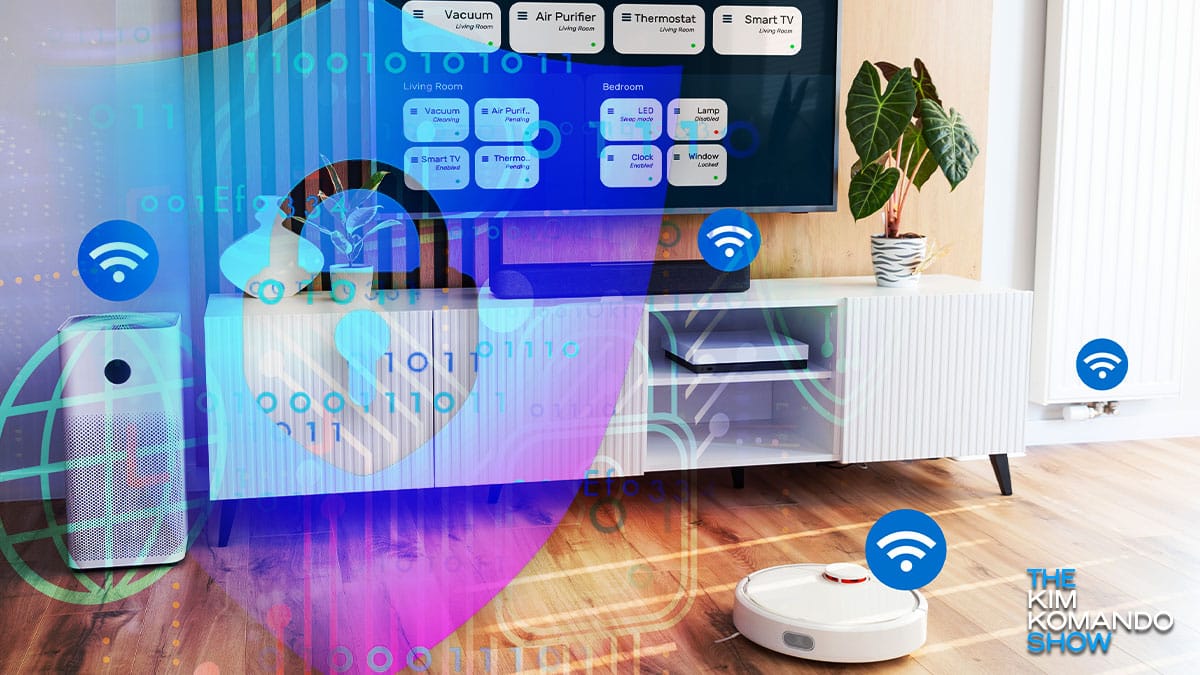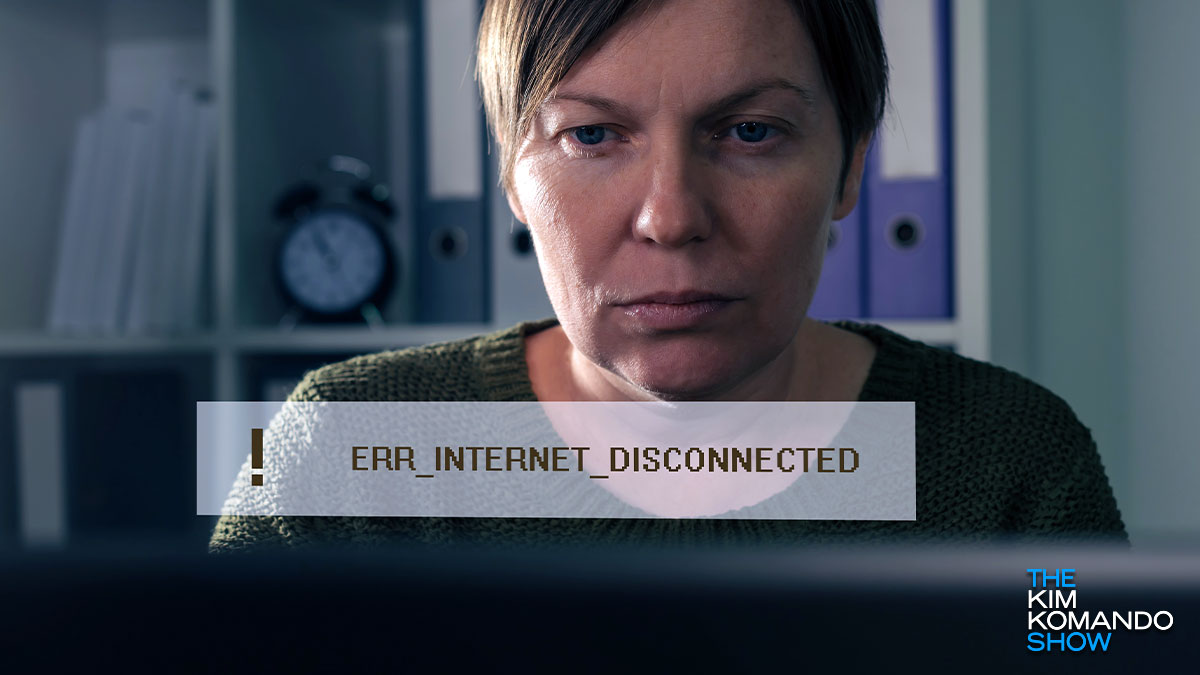U.S. Cyber Trust Mark 101: All about the latest legislation for tech products

Finally, some legislation around tech products! The White House announced its latest labeling and cybersecurity safety program: The U.S. Cyber Trust Mark.
It’s one wild world out there. Many people don’t realize the high-tech products in their homes could open them to a massive hack attack. This new program aims to help consumers identify safe Internet of Things (IoT) devices for purchase.
Here’s what you need to know about the new legislation and why it matters.
Somebody’s watchin’ me
IoT devices are everywhere today. Many families have multiple gadgets, from smart refrigerators to state-of-the-art baby monitors. The problem is that some devices have weak security systems, which puts your whole household at risk.
Take baby monitors, for example. One terrified mom discovered her Owlet baby monitors were hacked by strangers, and they did way more than watch her son. They started talking to him, too. Hackers often infiltrate household cameras either through Wi-Fi or from leaked credentials online.
The IoT device industry is booming, and with that boom comes increased cybersecurity risk. The government is finally stepping in to help consumers choose safe products for the home and workplace.
We’ve got (cyber) trust issues
The U.S. Cyber Trust Mark program will be overseen by the Federal Communications Commission (FCC). Through the program, a special mark will be placed on items proven to “adhere to best practices that make them less vulnerable to hackers and cybersecurity threats.”
It’s like the Energy Star program on many of today’s appliances. Instead of rating energy efficiency, the U.S. Cyber Trust Mark would rate an IoT device’s level of cybersecurity.
The National Institute of Standards and Technology (NIST) is also defining cybersecurity requirements for household routers, which are super-high-risk products. When a router is compromised, hackers can listen to private conversations, steal passwords and attack all linked devices.
There will also be a QR code and an identifiable mark on an approved product. You can scan the QR code to get more details about a device’s security, including information about security updates or patches.
About time! FCC passes new rules to block (some) spam texts

SMS scams come in many forms, and the Federal Communications Commission (FCC) is finally cracking down on perpetrators with a new piece of legislation. This action focuses on the service provider’s role in protecting its customers.
This terrifying phone scam uses a trusted phone number to trick you

Spam phone calls have been around for years and come at the most inopportune times, like when you’re sitting down for a family dinner. But they aren’t just annoying telemarketing calls these days. Now we have to worry about scammers trying to rip us off. Tap or click here for ways to silence spam calls without downloading any apps.
Signs you're being overcharged for your wireless bill

Signing up for a mobile phone plan should be a painless experience. Simply select the plan that fits your needs, use the device as expected, and pay the bill at the end of the month.
It’s not been quite that easy for some people. We know about mobile phone scams where criminals can sign your number up to premium services. But what do you do if your monthly bill has unauthorized charges tacked on?
If you pick up your phone and see this number, don't answer

Robocalls and spam phone calls will not disappear anytime soon, and unfortunately, there isn’t much that we can do about it. A recent study found that just under 4 billion Americans received such a call in only May this year.
Your ISP sees everything you do online - Here's how to stop it

We all know that Google, Amazon and Facebook are tracking us, but have you really thought about your ISP? That’s short for “internet service provider.” Depending on where you live, you may have a few to choose from — or maybe there’s only one.
Struggling with bad internet? Try the FCC's new speed test
Everybody needs a fast and stable internet connection. Unfortunately, there are still tons of people who struggle with broadband. Whether it is through failing infrastructure or simply being too remote, a steady connection is not always available. Slow internet? The FCC wants to know – tap or click here to report it.
One ring and then they hung up? It's a sneaky scam that could cost you

An old phone scam is making a serious comeback. It happens in the middle of the night and your smartphone rings just once. You wake up and your heart is pounding because calls in the dead of night usually mean bad news. You grab your phone and see a number from the African nation of Mauritania. Or you just see a number you can’t recognize.
Slow internet? The FCC wants to know - Here's how to report it
There are more than 115 million households in the U.S. that currently have broadband internet. That is an incredible amount of people who browse, download and work online. And when things don’t go as they should, it seriously impacts productivity.
If you're struggling to pay your internet bill, read this

When it comes to finding information about coronavirus, there’s no shortage of online resources. That can include specific infection numbers in your area, tips on going back to restaurants again, when to expect a vaccine and just about anything else you can think of.
